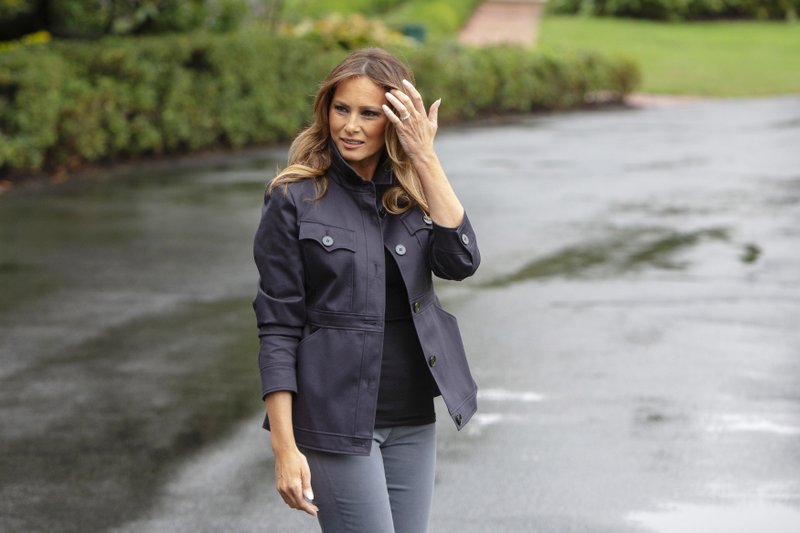WASHINGTON -- As the longest government shutdown in U.S. history continues, President Donald Trump is not the only member of the first family affected.
The White House residence staff, which caters to the first family and maintains the White House, is down to 21 workers from its usual 79, according to a shutdown memo from the Office of Management and Budget.
Melania Trump also is working with a skeleton crew. The first lady's staff, which promotes her work, has been cut from 10 to five, according to her spokesman.
The effect of the diminished ranks was on display Monday night as Donald Trump served a buffet of fast food to the visiting college football champions, the Clemson Tigers. No floral arrangements graced the buffet, where blooms crafted by the White House florist's office would typically appear. The White House florists have been deemed nonessential during the shutdown.
Chief usher Timothy Harleth, the residence's top executive and manager, helped light a pair of ornate candelabras, taking on a job more often delegated to a butler.
Some functions Melania Trump oversees have been shut down entirely, including White House tours. The first lady has been particularly involved in the operations of the White House Visitor Center, aides have said. But since the shutdown began, there are no groups of tourists filing through the executive mansion.
A call to the White House visitors information line directs callers with scheduled tours to contact the congressional office that arranged it. Congressional offices said they were informed that tours have halted during the shutdown and that people who had scheduled tours are getting cancellation notices.
Melania Trump's spokesman, Stephanie Grisham, said the first lady -- who hasn't held any public events this year -- is spending the shutdown plotting out future events and the direction of her "Be Best" initiative.
"We are in the planning phase for 2019 in terms of 'Be Best' and annual functions at the White House," Grisham wrote in an email. The first lady and her aides are "using this time for meetings and planning/strategy sessions."
The White House residence staff, which typically serves across multiple presidential administrations, has been through shutdowns before. But some former White House staff members have criticized the effect of the shutdown on the residence workers, who are often beloved by White House aides and the first families themselves.
The 21 members of the staff who are still at work are probably working without pay, like many furloughed federal employees, and won't be paid until the government reopens and restores back pay, former White House staff members say.
Grisham would not comment on whether the residence workers were going without paychecks.
Stephen Rochon, who was the White House's chief usher from 2007 to 2011, said it would be difficult to stretch the staff so thin as it manages a complex institution. "It's a tough place to run with only 21 people because everyone is very crucial, from the engineers to the butlers to the electricians to the carpenters," he said. "It takes every one of them to keep that house going."
Jeremy Bernard, a social secretary during the Barack Obama administration, recalled working through the 2013 government closure, though many of his White House colleagues were not allowed to work.
During that shutdown, the administration postponed some public events and limited others. Serving meals, he said, was out of the question because there wasn't a staff to prepare and serve them -- and the optics of throwing parties during a shutdown weren't good, either.
Bernard recalled having to go to a White House gate to double-check names on a guest list with the Secret Service, a task usually handled by an intern. Secret Service agents are also on the job and unpaid during a shutdown.
Before a press event, Bernard said, he and the chief usher were frantically moving chairs in place. While staff members can multitask like that for a while, Bernard said, the effect of a White House that's closed to the world is more consequential. Businesses nearby that rely on the flow of tourists suffer -- and so does the public, he said.
A Section on 01/17/2019

